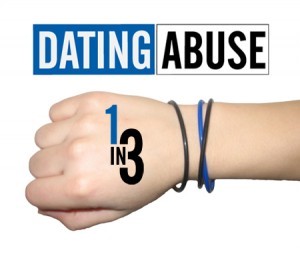What Is It? Dating violence is controlling, abusive, and aggressive behavior in a romantic relationship. It can happen in straight or gay relationships. It can include verbal, emotional, physical, or sexual abuse, or a combination. Controlling behavior may include:
- Not letting you hang out with your friends
- Calling or paging you frequently to find out where you are, whom you’re with, and what you’re doing
- Telling you what to wear
- Having to be with you all the time
Verbal and emotional abuse may include:
- Calling you names
- Jealousy
- Belittling you (cutting you down)
- Threatening to hurt you, someone in your family, or himself or herself if you don’t do what he or she wants.
Physical abuse may include:
- Shoving
- Punching
- Slapping
- Pinching
- Hitting
- Kicking
- Hair pulling
- Strangling
Sexual abuse may include:
- Unwanted touching and kissing
- Forcing you to have sex
- Not letting you use birth control
- Forcing you to do other sexual things
- RISK
If You Are a Victim of Dating Violence, You Might…
- Think it’s your fault.
- Feel angry, sad, lonely, depressed, or confused.
- Feel helpless to stop the abuse.
- Feel threatened or humiliated.
- Feel anxious.
- Not know what might happen next.
- Feel like you can’t talk to family and friends.
- Be afraid of getting hurt more seriously.
- Feel protective of your boyfriend or girlfriend.
Get Help Being a victim of dating violence is not your fault. Nothing you say, wear, or do gives anyone the right to hurt you.
- If you think you are in an abusive relationship, get help immediately. Don’t keep your concerns to yourself.
- Talk to someone you trust like a parent, teacher, school principal, counselor, or nurse.
- If you choose to tell, you should know that some adults are mandated reporters. This means they are legally required to report neglect or abuse to someone else, such as the police or child protective services.
- You can ask people if they are mandated reporters and then decide what you want to do. Some examples of mandated reporters are teachers, counselors, doctors, social workers, and in some cases, coaches or activity leaders.
- If you want help deciding whom to talk to, call a crisis line in your area. You might also want to talk to a trusted family member, a friend’s parent, an adult neighbor or friend, an older sibling or cousin, or other experienced person who you trust.
Help Yourself Think about ways you can be safer. This means thinking about what to do, where to go for help, and who to call ahead of time.
- Where can you go for help?
- Who can you call?
- Who will help you?
- How will you escape a violent situation?
Here are other precautions you can take:
- Calling the police. If you are in immediate danger, call 999
- Calling hotlines. Call Talian NUR 15999
- Reaching out to people you trust. People who care and want to help. You can start with family, friends, or community organizations.
- Talking to a health care professional. Doctors, nurses, and counselors can offer physical aid, emotional support, and resources. Go to a hospital emergency room if you need immediate help for injuries.
- Contacting a shelter or rape crisis center. Shelters provide food, housing, and other types of help. You can find shelters and services by contacting a hotline or through state resources. Examples are:
- http://www.jkm.gov.my/content.php?pagename=Rumah_Tunas_Harapan&lang=bm
- http://www.jkm.gov.my/content.php?pagename=Sekolah_Tunas_Bakti&lang=bm
- https://www.facebook.com/Rumah–Perlindungan-Wan
- blogspot.com
- Contacting an advocate. Advocates are people who are trained to help someone who has lived through domestic violence, dating violence, or sexual assault. You can talk to an advocate on the phone or in person, confidentially and for free. Advocates can explain options and programs in your community that may include legal support, counseling, emergency services, and other resources. Advocates work in shelters and in community-based programs. You can learn more by calling help hotlines.
Help Someone Else If you know someone who might be in an abusive relationship, you can help.
- Tell the person that you are worried.
- Be a good listener.
- Offer your friendship and support.
- Ask how you can help.
- Encourage your friend to seek help.
- Educate yourself about dating violence and healthy relationships.
- Avoid any confrontations with the abuser. This could be dangerous for you and your friend.
Referrences
- https://www.victimsofcrime.org/help-for-crime…/dating-violence
- http://www.womenshealth.gov/violence-against-women/get-help-for-violence/index.html
- http://www.nij.gov/topics/crime/intimate-partner-violence/teen-dating-violence/pages/risk-factors.aspx
- http://penyerihidupku03.blogspot.my/p/rumah-perlindungan.html
- http://www.jkm.gov.my/index.php?pagename=utama&lang=bm
| Last Reviewed | : | 3 Dec 2015 |
| Writer | : | Dr. Zakira binti Taib |
| Accreditor | : | Dr. Nik Rubiah binti Nik Abdul Rashid |








